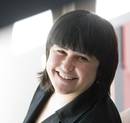Evolution of death
The way of understanding death is not old. Along with the great advances in medicine that have revolutionized the quality of life and allowed us to significantly extend our lives, in our country a culture has been imposed that has turned its back on death. We have been gaining technical tools, but we have been losing social and emotional tools to treat death. The main feature of this issue is entitled "De la muerte, sin tabúes" (Death, without taboos) with the desire to face a difficult issue.
Forensic doctor Luis Miguel Querejeta has transferred the most technical aspect of evolution. For him, transplants have been the most modified concept of death in recent years. In fact, in order for the organs to be in the best possible condition for transplantation, the physiological parameters of the body must be kept within normal limits, even if the person is dead. This requirement has incorporated specific technical, ethical and legal criteria into the death process, as well as difficulties in some cases. And, of course, it has allowed thousands of people to continue living.
We have also looked at the evolution of tobacco from the medical profession, as in addition to living, doctors also help to die. The consequences of living by denying death are also very evident in hospitals: behaving as if nothing happened, not wanting to talk about death, neither with the doctor, nor with the patient himself, dying in a strange environment instead of at home... "We are also taking away the patient the opportunity to prepare his farewell," says doctor Félix Zubia, although he believes that things begin to change.
Despite its hardness, awareness of the value of the farewell opportunity can catalyze the destruction of tobacco. Or a change in the way we understand death. The first lines of Richard Dawkins' book Unweaving the Rainbow are not a bad starting point: "We will die and we are happy for it. (...) More Arabia's grains of sand are people who could be on my side but will never see the light of day (...) We know that the number of potential people our DNA can generate is vastly higher than the number of actually existing people. (...) And although the opportunities are so scarce, you and I are, in our vulgarity, those who are here."






